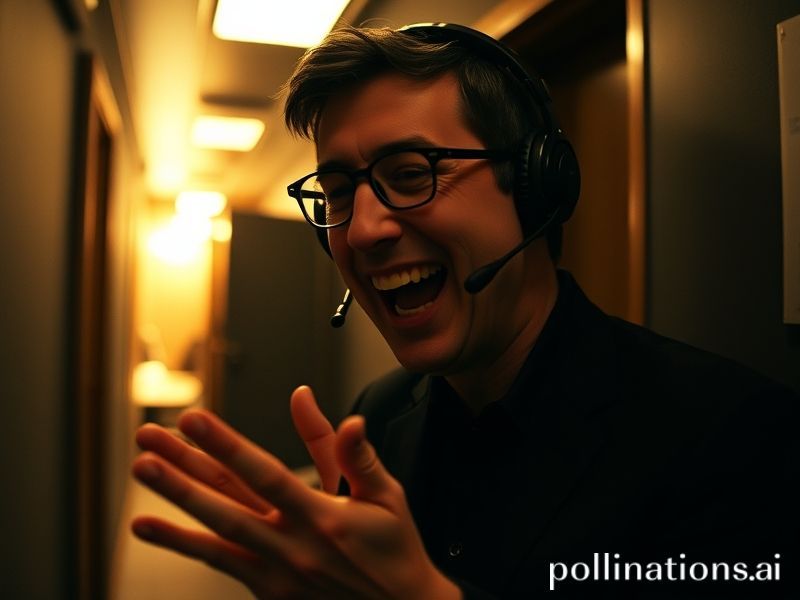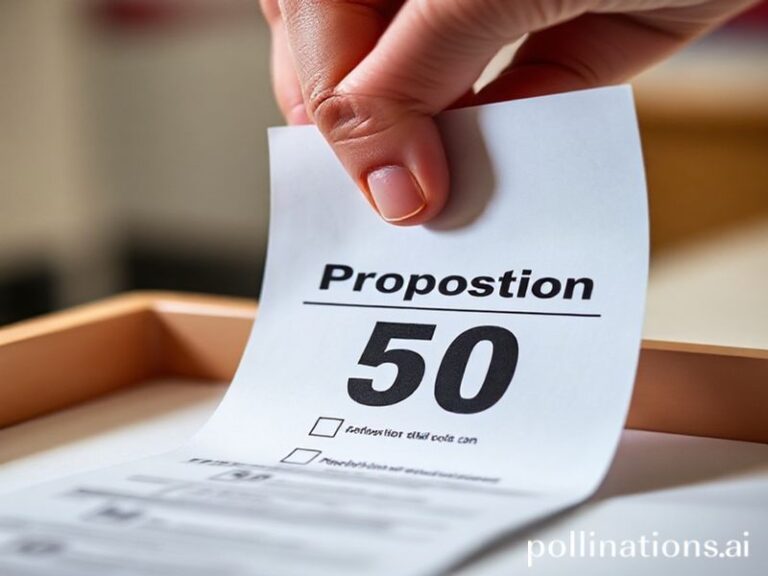John Oliver: How One Sweary Brit Became the World’s Translator for American Chaos
John Oliver, the bespectacled Englishman who somehow convinced HBO to fund weekly therapy sessions disguised as comedy, has become the planet’s unofficial translator for American dysfunction. From Lagos to Ljubljana, millions tune in not for his punch lines—though those are surgical—but for the reassurance that somewhere an over-caffeinated Brit is screaming into the void on their behalf. In an era when national news is often indistinguishable from improv night at a failing improv club, Oliver’s Last Week Tonight has become the globe’s preferred method of rubber-necking at the flaming car crash that is U.S. policy, without having to smell the smoke.
The show’s international reach is as absurd as it is impressive. Clips circulate on WhatsApp in Jakarta office parks minutes after airing; Brazilian prosecutors cite his segments in Supreme Court filings; German diplomats confess privately they learned more about the Senate filibuster from a 20-minute rant involving a dildo and a giant squirrel than from four years of embassy cable traffic. The jokes travel because the underlying rot—gerrymandering, predatory dialysis chains, the inexplicable durability of the penny—turns out to be universally recognizable. Every country has its own bespoke catastrophe, but America packages them with higher production values and an unlimited CGI budget for hypocrisy.
Oliver’s own origin story is instructive. A graduate of the Cambridge Footlights, he fled to the U.S. just as Britain began auditioning for its recurring role as a cautionary tale. He arrived in 2006, back when Americans still needed subtitles to understand sarcasm. Seventeen years later, his accent remains unchanged, a tiny act of colonial revenge: he weaponizes Received Pronunciation like a sonic stiletto, plunging it into the soft underbelly of American exceptionalism while smiling the smile of a man who knows exactly how the empire ended last time. The irony, of course, is that the empire now watches him to understand itself.
The show’s influence is measurable in lawsuits filed, regulations tweaked, and dictators furious. Uganda’s communications regulator once threatened to block YouTube after an Oliver segment compared the president to a “glitching Teletubby”; Turkmenistan’s ambassador lodged a formal protest over a bit on the country’s Guinness-grade corruption. These reactions suggest the program has stumbled onto something diplomats and NGOs spend decades failing to achieve: making kleptocrats feel personally insulted. When autocrats binge-watch your show at 3 a.m. to see if you mocked their marble fetish, you’ve transcended journalism and entered the realm of geopolitical performance art.
Yet the joke is also, quietly, on the audience. Each week we clap like trained seals as Oliver dismantles another scam—private equity looting nursing homes, police seizing cash via civil forfeiture—then return the next Sunday to discover the scam is still scamming. The catharsis is real but temporary, like a sugar high that ends with democracy still diabetic. Oliver knows this; his increasingly baroque stunts (buying and forgiving $15 million in medical debt, erecting a mobile sperm whale statue to shame Japan over whale hunts) feel like elaborate shrugs. If the system won’t change, at least it can be humiliated on premium cable.
Globally, the takeaway is bleakly comforting: no matter how uniquely screwed your country feels, the Americans are doing it louder, with better graphics, and a Supreme Court soundtrack. Watching Oliver rage against machine-gun-toting prairie dogs is a reminder that absurdity is the last shared human experience. Somewhere a Kenyan commuter, a Polish shopkeeper, and a Chilean student are all grimacing at the same clip of a congressman who thinks cloud storage is a weather conspiracy. In that synchronized wince lies a fragile solidarity—proof that while we may not share language, currency, or reliable public transport, we can at least unite in second-hand embarrassment for Florida.
The final irony? Oliver’s greatest victory may be exporting British pessimism so effectively that the world now expects disappointment delivered with impeccable diction. Mission accomplished, empire 2.0. Tea is optional; despair ships globally.







